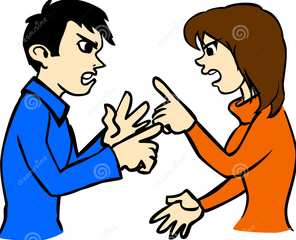 Yesterday, bloggers around the country were blogging for peace. I should have done it, but I wasn’t feeling very peaceful as I watched the election returns and felt that the country wasn’t going to seem very peaceful no matter who was elected President.
Yesterday, bloggers around the country were blogging for peace. I should have done it, but I wasn’t feeling very peaceful as I watched the election returns and felt that the country wasn’t going to seem very peaceful no matter who was elected President.
I appreciated Marianne Williamson’s all-to-brief run for the Presidency, not because I thought she had a chance of winning, but because she was disseminating a different message, one of hope and the ever-available possibility of transformation. Her candidacy reminded me somewhat of that of Eugene McCarthy years ago in which he said his goal was more in getting a message out than expecting to win.
I feel these days that Americans are a huge dysfunctional family that can’t quite stop the squabbling long enough to work together. If I had some magic words that would convince everyone to pull back from their most antagonistic stances, I would have blogged for peace.
Seems to me, no one is listening. Half of the memes I see on Facebook are wrong because those who posted them only care about one side of the story. I’m more of a moderate than those screaming on Facebook, so after finding no common ground with the most volatile posters and groups, I’m at a loss to find anything to say that matters.
Today’s political reality seems forever on the verge of a mog waiting to happen. Yesterday people were squabbling about the Fox News’ call that Biden won Arizona. The mob didn’t seem to realize that Fox News’ decision desk isn’t running the election. I have to idea how to talk to people who have no clue how stuff works.
I should have blogged for peace, but sometimes it just doesn’t seem worth the effort when everyone seems geared up for a fight.
 Malcolm R. Campbell is the author of two contemporary fantasies, “The Sun Singer” and “Sarabande.”
Malcolm R. Campbell is the author of two contemporary fantasies, “The Sun Singer” and “Sarabande.”
 In marriages, hurt feelings–and perhaps, separations and divorces–come from an unintentional cross word or something said in a fit of anger or the wrong impression given by saying something that isn’t clear.
In marriages, hurt feelings–and perhaps, separations and divorces–come from an unintentional cross word or something said in a fit of anger or the wrong impression given by saying something that isn’t clear. Protest songs and literature seemed to subside for a while; or maybe not. If they did, they have certainly returned now. Sites like Literary Hub, Arts & Letters Daily, and Poets & Writers that post articles and links claim there are more writers speaking out today than ever. The liberal writers, of course, focus their wrath on Trump; the conservative and moderate writers focus their wrath on the Democrats’ move toward the far left.
Protest songs and literature seemed to subside for a while; or maybe not. If they did, they have certainly returned now. Sites like Literary Hub, Arts & Letters Daily, and Poets & Writers that post articles and links claim there are more writers speaking out today than ever. The liberal writers, of course, focus their wrath on Trump; the conservative and moderate writers focus their wrath on the Democrats’ move toward the far left. In a Facebook discussion yesterday, I got into a debate with somebody who said we are duty-bound as citizens to become counter-protesters whenever a group we despise holds a rally or a “parade.” I disagreed. When certain groups, and their opposites, meet on a city street, the result is shouting. By itself, that accomplishes nothing. Sometimes it leads to violence and property destruction. The news media has a field day and the group that scheduled the march gets a lot of publicity.
In a Facebook discussion yesterday, I got into a debate with somebody who said we are duty-bound as citizens to become counter-protesters whenever a group we despise holds a rally or a “parade.” I disagreed. When certain groups, and their opposites, meet on a city street, the result is shouting. By itself, that accomplishes nothing. Sometimes it leads to violence and property destruction. The news media has a field day and the group that scheduled the march gets a lot of publicity. On that page, I provide four-to-five links a day about recent book news. But my sources are becoming more and more political and making that harder for me to do without politizing the page. That is, I’m finding less information about new releases and author interviews and writing tips, and more information about authors’ views about present-day politics. If I link to such articles very often, I’ve become a political site rather than a books and authors site.
On that page, I provide four-to-five links a day about recent book news. But my sources are becoming more and more political and making that harder for me to do without politizing the page. That is, I’m finding less information about new releases and author interviews and writing tips, and more information about authors’ views about present-day politics. If I link to such articles very often, I’ve become a political site rather than a books and authors site. Maybe we’re just flat tired of the ultra-polarized world we’ve suddenly found ourselves in. There seem to be few shares of grey: you either support a candidate or belief system 100% or you’re scum. There’s seldom an alternative. If you’re a moderate, in years gone by, you might have been a peacemaker, one who’s trying to bring together extreme views into a consensus. Now, moderates get beat up online by the extremists on both sides of the political aisle.
Maybe we’re just flat tired of the ultra-polarized world we’ve suddenly found ourselves in. There seem to be few shares of grey: you either support a candidate or belief system 100% or you’re scum. There’s seldom an alternative. If you’re a moderate, in years gone by, you might have been a peacemaker, one who’s trying to bring together extreme views into a consensus. Now, moderates get beat up online by the extremists on both sides of the political aisle.
 I associate it with the kinds of pitches I see aired with late-night TV shows where actors who look as reputable as Hannibal Lector try to push “miracle” products that I can get delivered immediately at 99% off if I call now. “Operators are standing by.”
I associate it with the kinds of pitches I see aired with late-night TV shows where actors who look as reputable as Hannibal Lector try to push “miracle” products that I can get delivered immediately at 99% off if I call now. “Operators are standing by.” “Slanderous statements by incumbent Clark Trail alleging that a man with a silver spoon in his mouth cannot possibly govern fairly or understand the needs of the majority of prospective voters have not only poisoned public opinion against me in the current election campaign, but have cost me my job at P.S. 47, gotten me kicked out of my role as head deacon at the church, and essentially banned me from local restaurants, movie theaters and grocery stores,” Argentite told reporters outside the courthouse this morning.
“Slanderous statements by incumbent Clark Trail alleging that a man with a silver spoon in his mouth cannot possibly govern fairly or understand the needs of the majority of prospective voters have not only poisoned public opinion against me in the current election campaign, but have cost me my job at P.S. 47, gotten me kicked out of my role as head deacon at the church, and essentially banned me from local restaurants, movie theaters and grocery stores,” Argentite told reporters outside the courthouse this morning. The short answer is: mayo, which, as you can see (unless you’re a user) is a four-letter word.
The short answer is: mayo, which, as you can see (unless you’re a user) is a four-letter word.